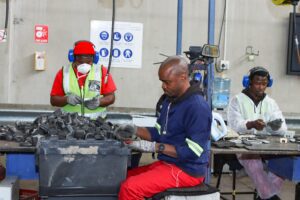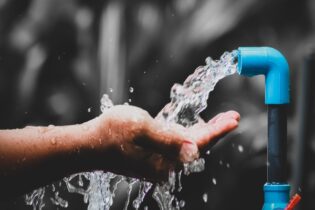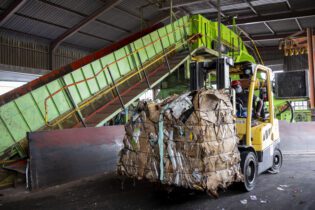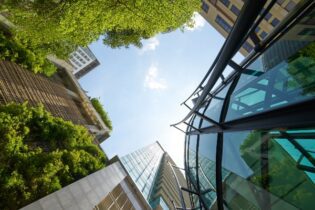The iLembe region is playing an increasingly important role within the waste electrical and electronic equipment (WEEE) recycling industry in KwaZulu-Natal and South Africa.
*By Shannon Moffett and Paul Jones Not only is the region one of the fastest growing in KZN, there are several WEEE (also known as e-waste) recycling companies based in the area that have a national footprint and recover and treat e-waste. Despite WEEE being the fastest-growing waste stream in most countries, South Africa’s current recycling rate is between 2% and 2.5% for waste lighting and between 10% and 12% for other waste electrical and electronic equipment. This became more important when on 23 August 2021, a landfill ban for e-waste became effective in addition to the landfill ban for lamps which was already put in place five years earlier. Although this ban has been enacted by the National Department of Forestry, Fisheries and Environment (DFFE), there is limited awareness and a lack of understanding about the implications of the recent e-waste landfill ban, particularly by local government, small businesses and households. Falling under the Vuthela iLembe LED Support Programme, the Sustainable Recycling Initiative (SRI) local component’s research has highlighted that little has been done in iLembe to comply with the WEEE ban; local policies and by-laws have not been scrutinised to ensure alignment with this ban, and limited WEEE collection and disposal options are available to avoid sending WEEE to landfill, especially for households and small businesses. On 29 March 2023, stakeholders from provincial and local government, iLembe business and resident’s associations, WEEE recyclers, NGOs, representatives of waste pickers, Producer Responsibility Organisations (PROs) and the SRI team gathered in Ballito to discuss a partnership to improve WEEE recycling in the district.This partnership, titled “WEEE are iLembe” is envisaged to create collaboration between stakeholders in the industry and work towards a shared vision.
The aim of the partnership is to increase the amount of e-waste that is released for recycling, in order to grow the industry and ultimately create new business and employment opportunities. To achieve this, the objectives are to increase awareness and education, create new knowledge, encourage enhanced WEEE collection, harmonise local policies and by-laws, and create a platform for engagement. Commenting on the partnership, Nisaar Mahomed from Trade and Investment KZN noted that a major part of the problem is a perception issue, where people see waste as something to be disposed of. He noted that people are now seeing how you can monetise waste. He stressed that “WEEE are iLembe” needs to consider the broader things like sustainable job creation through waste. Keith Anderson from eWASA agreed, noting that the challenge is not only the waste, but one of job creation, stressing the need to include the disadvantaged community. Keith further noted that alignment of partners is also important, as various organisations were carrying out WEEE recycling campaigns. Langalakhe Msomi from iLembe District Municipality stressed the importance of involving all the local municipalities in the initiative, and to focus on WEEE within government offices where he reported they had significant stockpiles. A previous study noted that “stockpiling e-waste is typical and the government sector may account for up to half of all e-waste”. The SRI project has also conducted a pilot study on how to address the challenges in freeing up government WEEE assets and are in the process of developing a toolkit to assist municipalities in this regard. CEO of Enterprise iLembe Linda Mncube who said that the district’s development agency was in full support of the partnership and was particularly interested to see the business expansion and development opportunities through the creation of an enabling environment for the recycling of WEEE. *Shannon Moffett is the Vuthela iLembe LED Support Programme coordinator of the Building Inclusive Growth Component and Paul Jones, Sustainable Recycling Initiative (SRI) local coordinator






